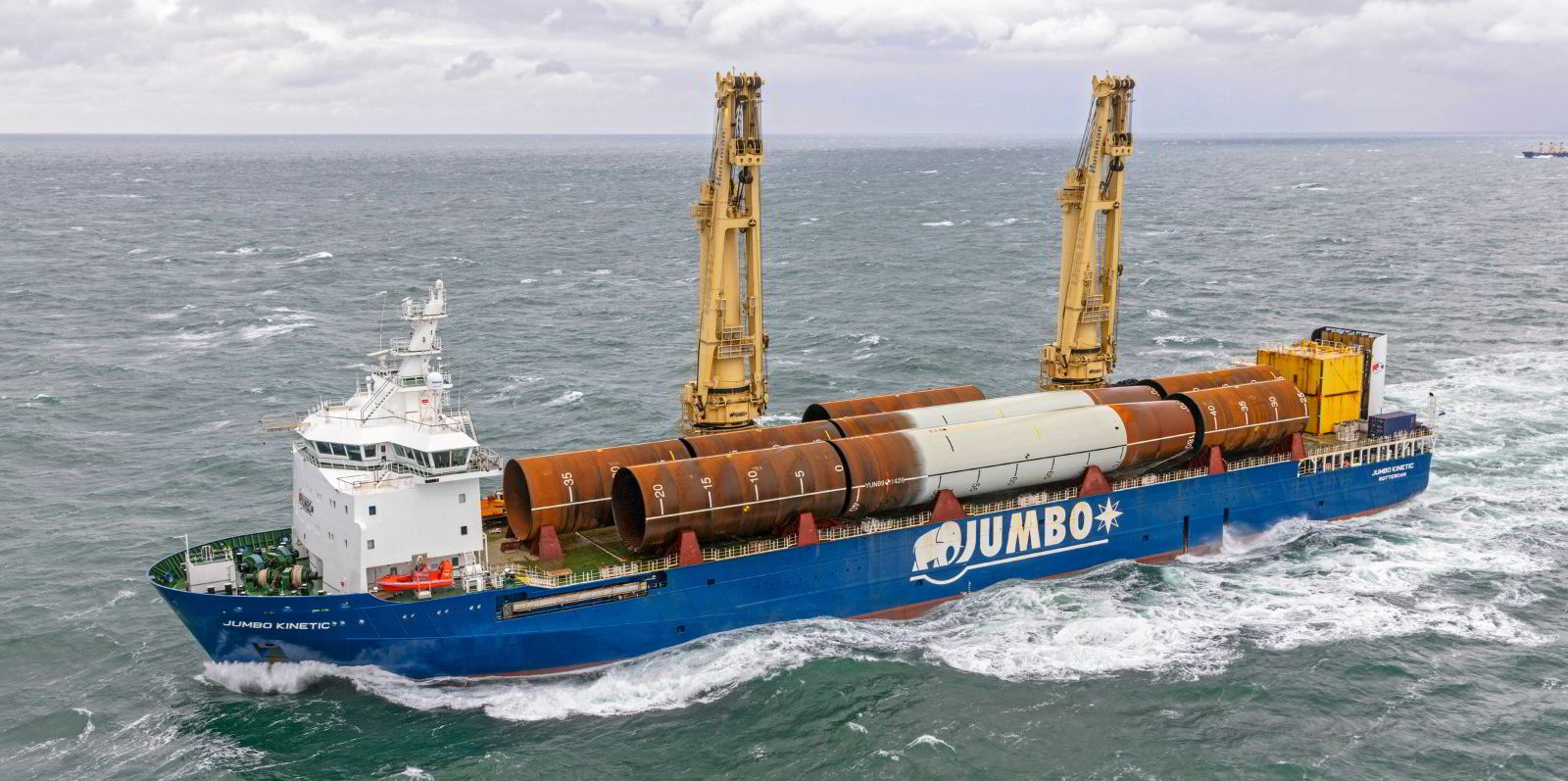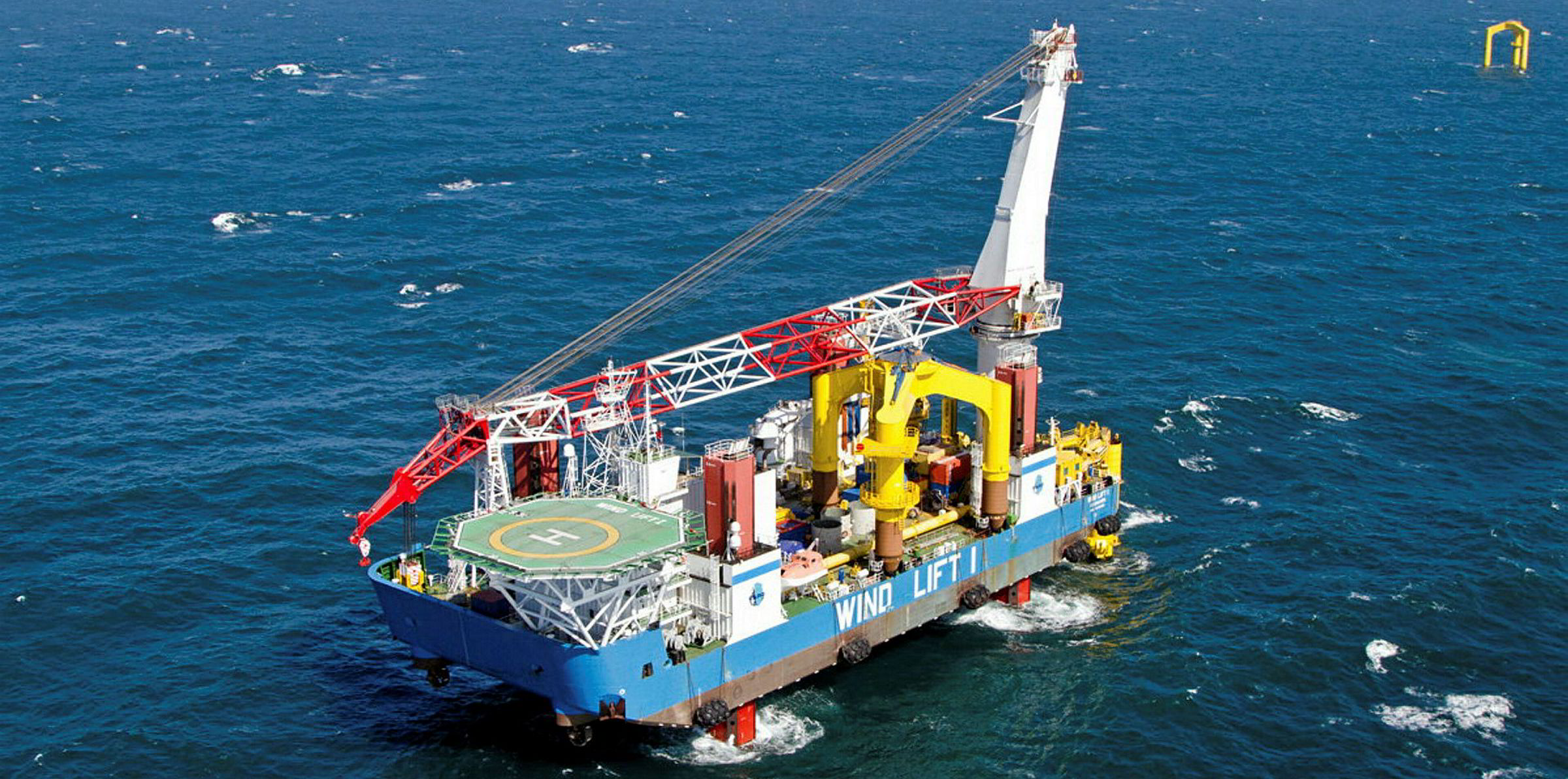When shipowners Martin Harren and Michael Kahn began talks about combining their heavylift fleets, they found themselves getting nowhere.
That forced them to take a different approach.
A commercial team nicknamed “the squad” were told to come up with ideas on what the combined operation of Germany’s SAL Heavy Lift and Dutch contractor Jumbo Maritime might look like.
It got things moving.
Three years on, the logic of merging the chartering and marketing operations to form a fleet of 30 dedicated project cargo vessels prevailed.
On 15 April, the Jumbo-SAL-Alliance came into being as an operator with the biggest fleet of vessels specialised in lifting capacity of 800 tonnes to 3,000 tonnes.
“In the beginning you have to build trust — you can’t cut corners there,” Jumbo managing director Kahn said.
The backing of two family-owned businesses is seen as a huge competitive advantage, according to Harren, the managing director of SAL and parent company Harren & Partner Group.
Having a privately owned fleet means they are able to make commitments for projects several years ahead.
“That is a very strong argument for our alliance in the future,” Harren said. He deems private ownership especially important in an era of commercial uncertainties, when many ships are owned by Chinese leasing companies.
Weak shipping markets were a driver for consolidation in the early phase of talks and the prospect of a recovery led the partners to pause for thought.
“We asked ourselves should we continue; maybe it wasn’t necessary for survival,” Harren recalled.
Easier on many fronts

But the benefits of collaboration heavily outweighed the traditional modus operandi of the two partners.
A larger fleet makes life easier on many fronts, not just operationally but also for buying and selling ships.
Harren believes selling or scrapping could be problematic when the two outfits operated smaller fleets.
Too few vessels would reduce the fleet to what might be deemed commercially “dangerous” levels, but scrapping a couple of vessels from a fleet of 30 is “doable”, he said.
Scheduling sailings is easier with a larger fleet.
“Not to sail half the world to get a ship loader is a huge advantage,” Kahn said.
“Even if one ship [has] a delay, we always have a replacement, with 12 ships with crane capacity of more than 1,000 tonnes.”
Operating in a niche area of shipping, it is unlikely that the alliance will need more vessels.
In fact, Jumbo recently sold the 7,561-dwt Fairlift (built 1990), an E-class vessel with cranes and a combined lifting capacity of 650 tonnes. SAL’s oldest vessels are 23 years old.
With three class-2 dynamically positioned vessels, two range-extending fly-jibs and 11 ice-class vessels, the partners argue that the new alliance can handle most projects.
“We will further adjust according to how the market [develops],” Kahn said.
“But size is not the issue. We want ... growth in sophistication, in complexity of project, in offering more of whatever the project needs.”
Older alliances disbanded
That philosophy extends to companies with which Jumbo has worked in the past and from which it might charter vessels in the future.
Jumbo recently disbanded its project cargo alliance with BBC Chartering, the operating company of Germany's Briese Schiffahrts.
We have no egos, we want to learn from each other. There are always lots of things we could do to improve our number one position in [the] market. It means we have to work on that every day
Michael Kahn
But the two parties have a good relationship that could involve cooperation in the future, according to Kahn.
“I’m sure there will be projects that require different, larger or more vessels to require the flexibility for clients,” he said.
“So we will go out into the market for whatever is best for a project, instead of just filling our own ships.”
The partners believe that newbuildings may be considered one day, but rates have not risen enough to justify such expense at present.
“This is a marriage for the future,” Kahn said. "We’re going to discuss it.
“We just have the scent of a minor improvement after 12 years. It’s nothing like in containers and it’s way too soon to talk about newbuilding.”
In the meantime, Harren and Kahn said they were learning from each other’s different managerial procedures.
“We have no egos, we want to learn from each other,” Kahn said.
“There are always lots of things we could do to improve our number one position in [the] market. It means we have to work on that every day.”







